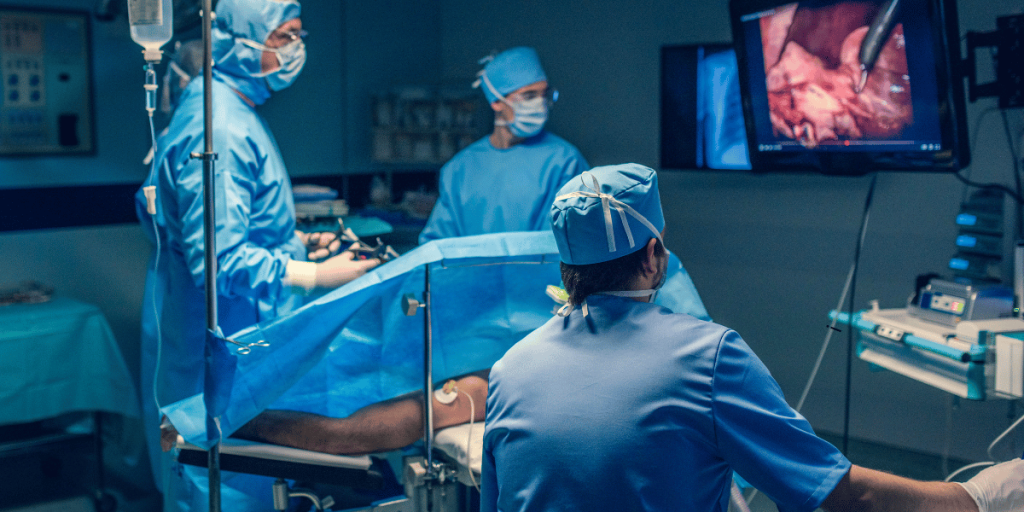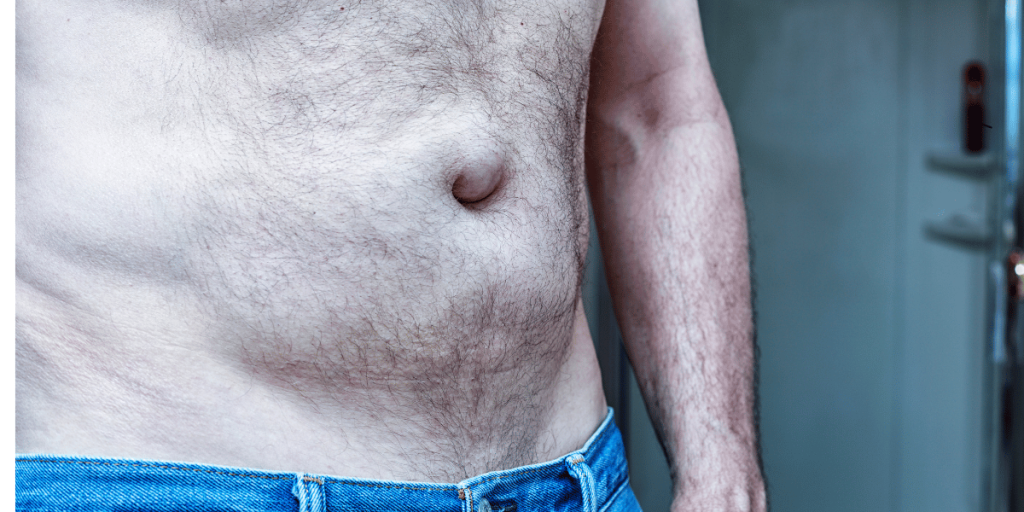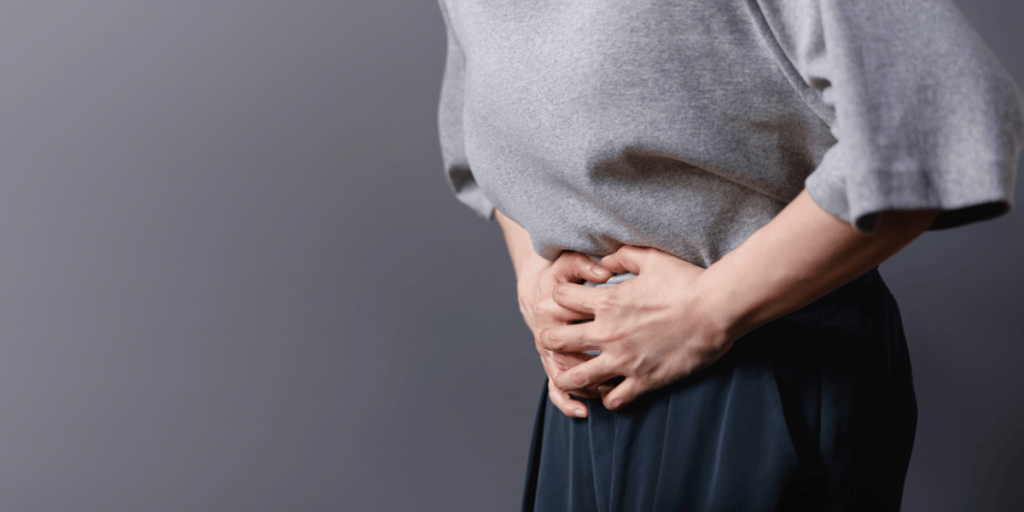Hiatal hernia surgery, also known as hiatal hernia repair, is a common procedure that can significantly impact a patient’s overall health and weight. This comprehensive article explores whether weight loss is a direct result of hiatal hernia surgery and how various factors contribute to weight changes post-surgery.
We will also examine the role of lifestyle changes, dietary guidelines, and physical activity in managing weight and improving overall health after the surgery. Key keywords related to this topic include abdominal wall, bariatric surgery, excess weight, physical activity, laparoscopic surgery, and many more.
Understanding Hiatal Hernia and its Types
A hiatal hernia occurs when part of the stomach pushes through the diaphragm into the chest cavity. This condition can lead to various symptoms, including acid reflux, chest pain, and difficulty swallowing. Hiatal hernias are categorized into two main types:
Sliding Hiatal Hernia
This is the most common type, where the stomach and the section of the esophagus that joins the stomach slide up into the chest through the hiatus. This type of hernia is often associated with gastroesophageal reflux disease (GERD), causing symptoms such as heartburn and acid reflux.
Paraesophageal Hiatal Hernia
Less common but more serious, this type occurs when part of the stomach pushes through the diaphragm next to the esophagus. Unlike sliding hiatal hernias, paraesophageal hernias can cause more severe symptoms and complications, such as strangulation of the stomach, which requires prompt medical attention.
The Role of Surgery in Treating Hiatal Hernias

Hiatal hernia surgery is often recommended when lifestyle changes and medications fail to alleviate symptoms. The primary goal of the surgery is to repair the hernia and prevent complications such as GERD, strangulation of the stomach, and chronic acid reflux.
Types of Hiatal Hernia Surgery
Hiatal hernia surgery can be performed using various techniques, with laparoscopic surgery being the most common. This minimally invasive procedure involves making small incisions in the abdomen, allowing the surgeon to repair the hernia with minimal disruption to surrounding tissues.
- Laparoscopic Hiatal Hernia Repair: This technique involves using a laparoscope, a thin tube with a camera, to guide the surgeon during the procedure. The small incisions reduce recovery time and minimize postoperative complications.
- Open Surgery: In cases where laparoscopic surgery is not feasible, open surgery may be performed. This involves a larger incision in the abdomen or chest to access and repair the hernia.
Benefits of Hiatal Hernia Surgery
- Symptom Relief: Surgery can effectively alleviate symptoms such as acid reflux, chest pain, and difficulty swallowing, improving the patient’s quality of life.
- Prevention of Complications: Repairing the hernia can prevent serious complications such as strangulation of the stomach and chronic GERD.
- Improved Digestive Function: Successful surgery can restore normal digestive function, allowing patients to eat more comfortably and reduce the risk of recurrent hernias.
Weight Loss After Hiatal Hernia Surgery
Weight loss after hiatal hernia surgery is not guaranteed and can depend on several factors, including the patient’s pre-surgery weight, lifestyle changes, and adherence to dietary guidelines. However, there are several reasons why patients might experience weight loss post-surgery.
Factors Contributing to Weight Loss
- Reduced Appetite: Post-surgery, patients may experience a reduced appetite due to changes in the digestive system and the healing process. This can lead to a decrease in food intake and subsequent weight loss.
- Dietary Restrictions: Following surgery, patients are often advised to follow a specific diet, which can include smaller meals, liquid diets, and avoiding certain foods that may trigger acid reflux. These dietary changes can contribute to weight loss.
- Physical Activity: Increased physical activity post-surgery can help burn calories and promote weight loss. Engaging in regular aerobic exercise and strength training can also improve overall health.
- Improved Digestive Function: Successful hiatal hernia repair can alleviate symptoms such as acid reflux and chest pain, allowing patients to eat more comfortably and make healthier food choices.
The Impact of Lifestyle Changes

Adopting a healthier lifestyle post-surgery can play a significant role in weight management. Here are some lifestyle changes that can help:
- Healthy Diet: Consuming a balanced diet rich in whole grains, fruits, vegetables, and lean proteins can promote weight loss and improve overall health. Avoiding fatty tissue and high-calorie foods is essential.
- Regular Exercise: Engaging in regular physical activity, such as walking, swimming, and other forms of aerobic exercise, can help maintain a healthy weight and strengthen abdominal muscles.
- Avoiding Heavy Lifting: Patients should avoid heavy lifting, especially during the recovery phase, to prevent strain on the abdominal wall and reduce the risk of hernia recurrence.
Dietary Guidelines Post-Surgery
Boost your energy and support a smooth recovery post-hernia surgery with Tea Burn, a simple addition to your daily routine that helps enhance metabolism and maintain a healthy weight during your healing process.
Adhering to dietary guidelines is crucial for recovery and weight management after hiatal hernia surgery. Here are some general rules to follow:
- Small, Frequent Meals: Eating smaller, more frequent meals can help prevent excessive pressure on the stomach and reduce the risk of acid reflux.
- Avoiding Trigger Foods: Certain foods, such as spicy dishes, citrus fruits, and high-fat foods, can trigger acid reflux and should be avoided.
- Liquid Diet: Initially, patients may be advised to follow a liquid diet to allow the surgical site to heal. Gradually, they can transition to solid foods as recommended by their healthcare provider.
- High Fiber Diet: Consuming a high fiber diet can promote digestive health and prevent constipation, which is crucial during the recovery period.
- Staying Hydrated: Drinking plenty of water is essential for overall health and can help prevent complications such as blood clots.
Potential Side Effects and Complications
While hiatal hernia surgery is generally safe, there are potential side effects and complications to be aware of:
- Pain and Discomfort: Pain and discomfort at the incision site are common post-surgery. Pain medication can help manage this.
- Difficulty Swallowing: Some patients may experience difficulty swallowing initially, which usually resolves as the surgical site heals.
- Risk of Hernia Recurrence: There is a possibility of hernia recurrence, especially if lifestyle changes are not maintained.
- Postoperative Complications: In rare cases, complications such as infection, bleeding, and blood clots can occur. It is important to follow postoperative care instructions to minimize these risks.
Weight Loss Surgery and Hiatal Hernia Repair
In some cases, weight loss surgery, such as gastric bypass surgery or bariatric procedures, may be recommended in conjunction with hiatal hernia repair. This is especially true for patients with excess weight or obesity, as weight loss can significantly reduce the risk of hernia recurrence and improve overall health.
Benefits of Combined Surgery
- Significant Weight Loss: Weight loss surgery can result in rapid and significant weight loss, which can alleviate pressure on the abdominal wall and reduce the risk of hernia recurrence.
- Improved Health Conditions: Weight loss can improve health conditions such as high blood pressure, sleep apnea, and heart disease, which are often associated with obesity and hiatal hernias.
- Enhanced Quality of Life: Combining weight loss surgery with hiatal hernia repair can lead to improved quality of life, reduced symptoms, and better overall health.
Recovery Process and Long-Term Management
The recovery process after hiatal hernia surgery varies depending on the type of surgery and the individual patient. Here are some key aspects of the recovery process and long-term management:
Recovery Time
- Laparoscopic Surgery: Recovery time for laparoscopic surgery is typically shorter, with most patients returning to normal activities within a few weeks.
- Open Surgery: Recovery time for open surgery is longer, with a more extended period of rest and restricted activity.
Postoperative Care
- Follow-Up Appointments: Regular follow-up appointments with the healthcare provider are essential to monitor healing and address any complications.
- Dietary Restrictions: Adhering to dietary restrictions and guidelines is crucial during the recovery phase to promote healing and prevent complications.
- Avoiding Strain: Patients should avoid activities that strain the abdominal wall, such as heavy lifting, during the recovery period.
Long-Term Management
- Maintaining a Healthy Weight: Achieving and maintaining a healthy weight through diet and physical activity can reduce the risk of hernia recurrence and improve overall health.
- Healthy Lifestyle: Adopting a healthier lifestyle, including regular exercise, a balanced diet, and avoiding smoking and excessive alcohol consumption, is essential for long-term management.
- Monitoring Health Conditions: Regular monitoring and management of health conditions such as high blood pressure, diabetes, and heart disease can prevent complications and improve overall health.
Detailed Look at Lifestyle Changes Post-Surgery
Adopting lifestyle changes post-surgery can be a pivotal aspect of the recovery process and long-term management of hiatal hernias. These changes not only aid in weight loss but also enhance overall health and prevent recurrence of hernias.
Importance of a Healthy Diet
A healthy diet is foundational for recovery and weight management post-surgery. Here are specific dietary guidelines to consider:
Whole Grains
Whole grains, such as brown rice, oatmeal, and whole wheat bread, provide essential nutrients and fiber that promote digestive health and prevent constipation. Incorporating whole grains into your diet can also help maintain a healthy weight.
Balanced Meals
Consuming balanced meals that include a variety of food groups can ensure you get the necessary nutrients for healing and overall health. A typical balanced meal might include lean proteins, whole grains, vegetables
like spinach or broccoli, and healthy fats like those found in avocados or nuts.
High Fiber Diet
A high fiber diet is crucial for promoting digestive health and preventing constipation, which is essential during the recovery period. Fiber can be found in fruits, vegetables, legumes, and whole grains.
Smaller, Frequent Meals
Eating smaller, more frequent meals can help prevent excessive pressure on the stomach and reduce the risk of acid reflux. This can also aid in managing appetite and controlling portions, contributing to weight management.
Avoiding Trigger Foods
Certain foods can trigger acid reflux and should be avoided. These include spicy foods, citrus fruits, caffeine, chocolate, and high-fat foods. Identifying and avoiding these triggers can significantly improve comfort and prevent complications.
The Role of Physical Activity
Regular physical activity is a cornerstone of weight management and overall health post-surgery. Engaging in regular exercise can help burn calories, build muscle mass, and improve cardiovascular health. Here are some specific recommendations:
Aerobic Exercise
Aerobic exercises, such as walking, swimming, or cycling, can help improve cardiovascular health and promote weight loss. Aim for at least 150 minutes of moderate-intensity aerobic exercise per week.
Strength Training
Strength training exercises, such as lifting weights or using resistance bands, can help build muscle mass and improve metabolism. Incorporating strength training two to three times a week can be beneficial.
Avoiding Heavy Lifting
While exercise is important, it is crucial to avoid heavy lifting, especially during the recovery phase, to prevent strain on the abdominal wall and reduce the risk of hernia recurrence.
Monitoring and Managing Health Conditions
Regular monitoring and management of health conditions, such as high blood pressure, diabetes, and heart disease, are essential for preventing complications and ensuring overall health. Here are some strategies to consider:
Regular Check-Ups
Regular check-ups with your healthcare provider can help monitor your progress, address any concerns, and make necessary adjustments to your treatment plan.
Medication Management
If you have existing health conditions, it is important to take your medications as prescribed and discuss any potential interactions or side effects with your healthcare provider.
Blood Pressure Control
High blood pressure is a common risk factor for both hernias and other health complications. Monitoring and managing your blood pressure through lifestyle changes and medication can help reduce your risk.
Addressing Potential Side Effects and Complications

While hiatal hernia surgery is generally safe, being aware of potential side effects and complications can help you manage them effectively.
Pain and Discomfort
Pain and discomfort at the incision site are common post-surgery. Your healthcare provider may prescribe pain medication to help manage this. It is important to follow the prescribed dosage and report any severe or persistent pain to your healthcare provider.
Difficulty Swallowing
Some patients may experience difficulty swallowing initially, which usually resolves as the surgical site heals. Eating softer foods and taking smaller bites can help manage this symptom.
Risk of Hernia Recurrence
There is a possibility of hernia recurrence, especially if lifestyle changes are not maintained. Following dietary guidelines, avoiding heavy lifting, and maintaining a healthy weight can help reduce this risk.
Postoperative Complications
In rare cases, complications such as infection, bleeding, and blood clots can occur. It is important to follow postoperative care instructions and contact your healthcare provider if you experience symptoms such as fever, excessive swelling, or difficulty breathing.
Long-Term Management Strategies
Adopting long-term management strategies can help ensure successful recovery and prevent recurrence of hiatal hernias.
Maintaining a Healthy Weight
Achieving and maintaining a healthy weight is crucial for preventing hernia recurrence and improving overall health. This can be achieved through a combination of healthy eating, regular physical activity, and lifestyle changes.
Healthy Lifestyle Choices
Adopting a healthier lifestyle, including regular exercise, a balanced diet, and avoiding smoking and excessive alcohol consumption, is essential for long-term management. These choices can help improve overall health and reduce the risk of complications.
Regular Monitoring and Follow-Up
Regular monitoring and follow-up appointments with your healthcare provider can help track your progress, address any concerns, and make necessary adjustments to your treatment plan. This can help ensure successful recovery and long-term management.
Conclusion
Weight loss after hiatal hernia surgery is not guaranteed but can be influenced by various factors such as reduced appetite, dietary restrictions, and increased physical activity. Adopting a healthy lifestyle, including a balanced diet and regular exercise, is crucial for managing weight and improving overall health post-surgery.
By following dietary guidelines and making necessary lifestyle changes, patients can achieve and maintain a healthy weight, reduce the risk of hernia recurrence, and enjoy a better quality of life. Consulting with healthcare professionals and adhering to postoperative care instructions are essential for the successful recovery and long-term management of hiatal hernias.
While hiatal hernia surgery primarily aims to alleviate symptoms and prevent complications, it can also indirectly contribute to weight loss through lifestyle and dietary changes. Emphasizing a healthy diet, regular physical activity, and proper medical follow-up can lead to significant health benefits and improve the overall well-being of patients post-surgery.
*Some of the links on this blog are affiliate links. This means if you click on the link and purchase the item, I will receive an affiliate commission.


